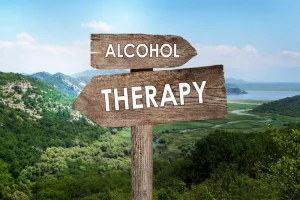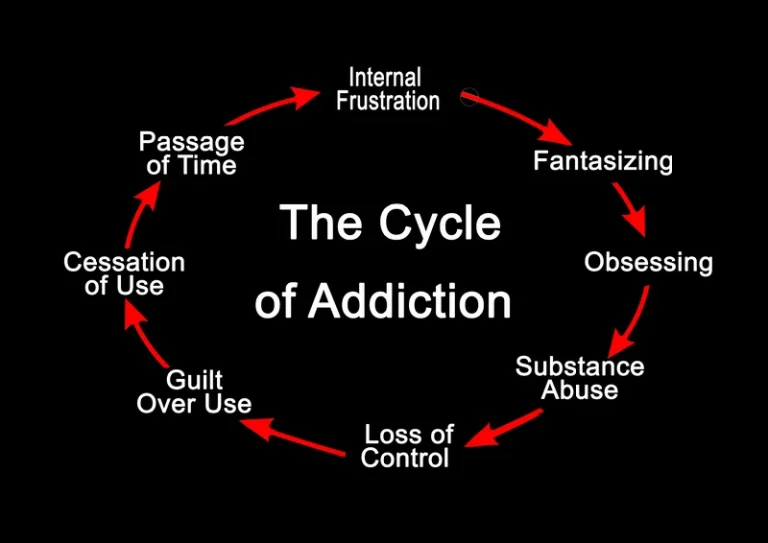
Tolerance occurs when the body becomes less responsive to the effects of a substance over time, requiring higher doses to achieve the desired effect. Withdrawal symptoms, on the other hand, manifest when the substance is abruptly reduced or discontinued. These symptoms can vary depending on the substance but often include physical discomfort, cravings, and an intense desire to continue using the substance. DrugAbuse.gov offers an insightful explanation based on brain image studies from people addicted to drugs. The study found, physical changes in areas of the brain that are critical for judgment, decision making, learning, memory, and behavior control in addicted people. Scientists believe that these changes alter the way the brain works and may help explain the compulsive and destructive behaviors of an addicted person.

PTSD & Addiction Treatment Center Utah
This is very common for people who use drugs that may not cause severe withdrawal symptoms when they aren’t using. Accurately identifying persons with addiction is critically important for effectively targeting treatment and harm reduction interventions. Misdiagnosis of addictive disorders can lead to a cascade of negative outcomes, including stigma, discontinuation of needed medications, undue scrutiny of both patients and physicians, and even criminal consequences. It is hardly surprising that physicians frequently mislabel patients when the ICD terms used to code for addiction are themselves misleading. ICD codes have not been updated to reflect current understanding of addiction, unlike those in the DSM-5.
Impact on Treatment Approaches
The psychological aspects of addiction are sometimes so tortuous that they are the hardest symptoms to overcome. Before physical dependence forms, the afflicted individual begins building a tolerance on their substance of choice. Tolerance works the same way with alcohol – someone who used to get drunk off of three beers may now need to drink hard liquor in larger amounts in order to get drunk.
Treating Physical and Psychological Dependence
- This is a common physical addictive dependency versus a psychological dependency.
- Nearly everyone who takes opioids for months or more will develop dependence, but only around eight percent or fewer of patients on chronic opioid therapy for pain will develop addiction.
- While there is much overlap between the two, and they typically occur in tandem, it helps to see some of the differences between them.
- The body develops tolerance and dependence, but this is not immediately indicative of addiction.
Understanding the interplay between the two can guide appropriate treatment approaches. Once a person begins using on a daily or regular basis, the body becomes dependent on that drug. This means the cells can’t function the way they have been without the drug they have become accustomed to.
Key Differences in Symptoms and Manifestations

At North Jersey Recovery Center, we strive to make your addiction treatment experience as comfortable as possible. Consuming the drug or alcohol at an excessive level is a social symptom of an addict. The reason for wanting to be alone can be because of shame or just the substance taking over one’s life. To combat addiction, it would be helpful to have loved ones help you overcome and be a part of your recovery life.
Impact on Behavior and Body
Professional support offers a safe and non-judgmental environment for individuals to discuss their struggles, receive evidence-based treatment, and develop coping strategies for long-term recovery. Dependence refers to a state in which an individual becomes physiological dependence on alcohol reliant on a substance, behavior, or activity to function normally or to experience pleasure. It involves a compulsive need for the substance or behavior, accompanied by the emergence of withdrawal symptoms when the substance or behavior is discontinued.
Treatment Approaches
However, other forms of drug dependence can cause significant withdrawal symptoms. For some substances, such as alcohol, suddenly stopping it can be dangerous. In these cases, treatment involves gradually tapering off the drug over a set period to reduce withdrawal effects. When dealing with dependence, seeking professional support is essential to ensure effective treatment and recovery.

Physical dependence refers to the body’s reliance on a substance, such as drugs or alcohol, to function normally. When a person develops physical dependence, their body undergoes physiological changes that result in tolerance and withdrawal symptoms. From there, they move into addressing the underlying causes of their substance use, which is the psychological side of addiction. Finding the right treatment facility and support system is crucial in addressing both the physical and psychological aspects of addiction. Some addiction therapists believe that psychological dependence is more challenging to overcome and may require extensive aftercare.

Gastro-abdominal Issues
- Medications can help manage symptoms and provide individuals with the stability needed to engage in therapy effectively.
- During your personalized therapy sessions, we help you develop coping techniques, so you are empowered to live a sober life.
- However, physical dependence alone does not address the underlying psychological factors that contribute to addiction.
- It highlights the need for comprehensive care that addresses both physical symptoms and psychological factors, such as cravings and emotional triggers.